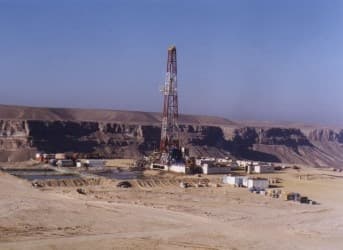The Norwegian energy company DNO International says it has exceeded 100,000 barrels of oil per day from its operations in the Kurdish north of Iraq, while Russian energy company Gazprom Neft is boasting of its own success in the south. The two announcements form part of a bigger picture that has important implications for the global oil market of the future.
Production from the Tawke field in the Kurdish region of Iraq reached 120,021 barrels per day (bpd) last month, the first time ever that the average monthly rate passed the 100,000 bpd mark for the Norwegian oil and gas operator in Iraq.
Gazprom Neft, the oil arm of Russian gas monopoly Gazprom, said it started its drilling program in the Badra oil field near the Iraqi border with Iran. Badra is estimated to hold as much as 3 billion barrels of oil, and in March, the Russian oil company connected the field to the main pipeline system in Iraq that runs to an export terminal in the Persian Gulf port of Basra.
Those two developments matter because the international marketplace is going to be looking to Middle East oil producers like Iraq to make up for the decline in oil output from North America that's expected in the coming years.
OPEC predicts the world will need 1.15 million more barrels per day this year than it did last year. The United States, the world's leading economy, is relying more on its own reserves, and Europe, which collectively represents the second-largest economy, is still struggling to gain traction. Nearly half the annual oil demand growth is from economies in Asia and the Middle East.
That means Iraq, one of the largest oil producers in the world, will play a leading role in the future oil market. And even with the increase in production from U.S. shale deposits, Iraq is still the No. 5 oil exporter to the U.S. market.
For Iraq itself, however, rivalries between the semiautonomous government in Erbil, which controls the Kurdish north, and the central government in Baghdad, make predictions about a unified national oil sector difficult.
The government of Kurdistan last month made its first-ever export of crude oil, which shipped from a Turkish seaport. The move may have signaled the start of a geopolitical and economic power struggle between the two Iraqi governments and foreshadow a move towards eventual Kurdish independence.
Baghdad called the oil exports illegal, but the Kurdish government said its hand was forced because it wasn't getting its fair share of the federal budget. It maintained as well that Kurdish oil exports weren't part of a move for independence.
But adding Kurdish oil to the world market isn’t as simple as sending ships from Point A to Point B. Erbil’s defiance of Baghdad has created nervousness among potential customers, and the KRG has yet to find a buyer for its first shipment, now docked in Morocco.
Shwan Zulal of London-based Carduchi Consulting told the Turkey’s Daily Sabah, “Companies or countries are cautious about Kurdish crude because they do not want to be dragged into an internal dispute in another country."
Already, Italy, under pressure from Baghdad, has warned against buying KRG oil.
Reuters obtained a copy of a letter from the Italian Industry Ministry that “warned traders and refineries that the Iraqi government had told [the Italian] embassy in Baghdad that such crude sales were illegal, and they could face penalties from its oil marketing arm, SOMO.”
The KRG seems undeterred. According to the latest reports, a second tanker carrying Kurdish oil has just left Turkey.
ADVERTISEMENT
The international reaction, as well as internal disputes in Iraq, could be pivotal for a future oil market that depends on the Middle East to thrive.
A crude oil trader based in London who spoke Daily Sabah anonymously also confirmed that Kurdish oil was being sold. "The sale of first Kurdish crude is already done. I cannot identify name of buyer company but it's one of the big players in the market." Furthermore the oil trader affirmed that market players are ready to buy more oil from the KRG without any hesitation.
By Daniel J. Graeber of Oilprice.com


















